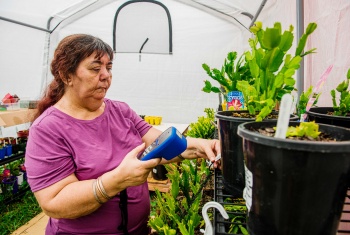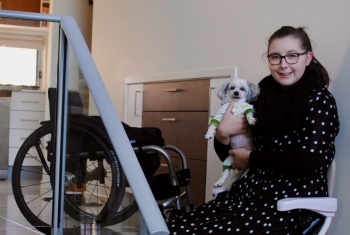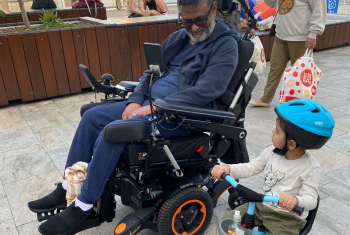A young Maitland woman has been given the gift of independence after receiving funding for some simple, yet life-changing assistive technology devices from the National Disability Insurance Scheme (NDIS).
Bronte Cincotta, 21, said that life with a hearing impairment meant simple things like waking up in the morning without being able to hear an alarm clock and ensuring her personal safety were matters of significant concern.
NDIS supports have changed all that, allowing Bronte to discover and purchase a vibrating alarm clock and a flashing smoke alarm to prepare her to live independently at some stage in the future.
“Prior to becoming a NDIS participant, I was concerned about how I would effectively and safely live independently in the future,” Bronte said.
“One of my concerns was being able to wake up in the mornings. My entire life, I have relied on my mum to wake me up but that recently changed when I got some really helpful assistive technology through the NDIS – a vibrating alarm clock and a smoke alarm, specifically designed for people with hearing loss.”
“Now I don’t have to rely on mum to wake me up every morning, and the smoke detector is a great safety inclusion. In the event of a fire, it will flash. It also comes with a shaker I can put under my pillow, which will vibrate to wake me up. Although these items may seem small to some, they have drastically enhanced my life.”
Bronte said without her hearing aids, she can’t hear many sounds and to this day there are still some basic sounds she can’t hear with, or without, her hearing aids.
“I can’t hear the sound of running water in the shower. I can’t hear the sound of flies or mosquitoes buzzing, the sound of rain outside, or the sound of footsteps in the hallway,” she said.
Bronte gave some tips for communicating with people with a hearing impairment, saying the best thing people can do is to exercise patience.
“Most of the time it’s extremely difficult for us to hear, even when we are wearing hearing aids,” she said.
“It’s hard to distinguish different sounds, especially when background chatter overpowers the person’s voice. It makes it hard for us to just focus on their voice.”
“If they talk too fast, it’s more difficult for us to hear them properly.”
Bronte encouraged others with a disability to explore supports through the NDIS.
“Just contact them. There’s nothing to lose by simply having a conversation with a staff member in order to obtain more information. It can have a really positive impact on your life,” she said.
Bronte’s top three tips for communicating better with people with hearing loss:
- Gain the person’s attention and face them before you start to speak – people with hearing loss are often more reliant on visual cues like lip-reading.
- Give the person time to adjust – let them stop what they are doing so they can take a moment to turn and completely focus on you.
- Remember, every person with hearing loss has different communication needs. Don’t assume, ask the person what you can do to help the communication flow more smoothly.


